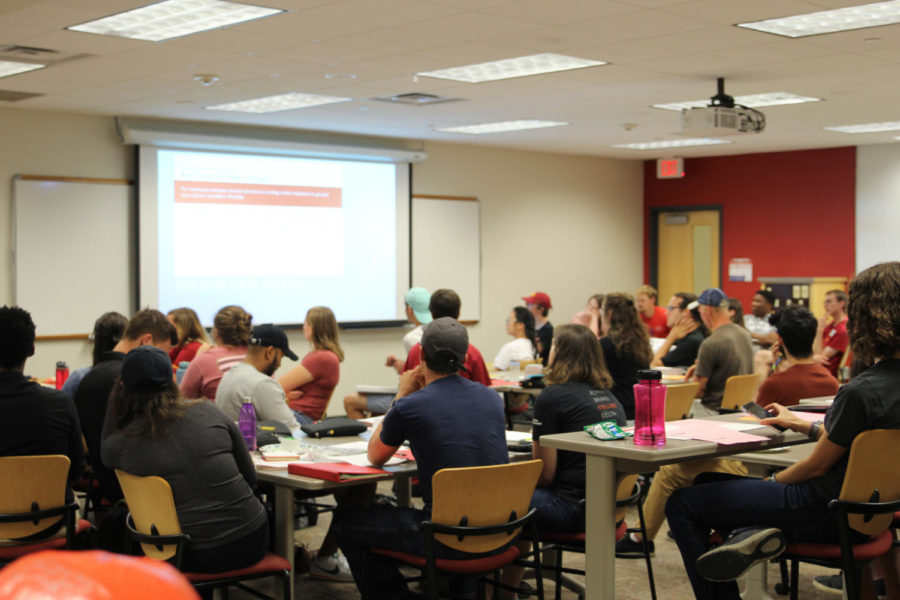Supplemental instruction leaders and tutors finish virtual services as semester ends
April 30, 2020
Supplemental instruction and tutoring services have continued while students are taking virtual classes, but leaders and tutors have had to find what works best for virtual resources.
Carolyn White, senior in biological systems engineering, was a supplemental instruction leader for the spring and fall 2019 semesters and this current semester she has been a pilot mentor for the program.
As a pilot mentor, White mostly interacts with supplemental instruction leaders to have conversations about how they can best serve students.
The tutoring and supplemental instruction sessions have been hosted via Webex, a video call platform, during the virtual instruction time period for classes.
“We’ve had technical difficulties along the way, most of it being related to audio or video or internet connection, or just trying to present something up on the screen,” White said. “I think that everyone has kind of taken it in strides that when one problem arises they’re either quick to fix it or quick to let somebody know.”
Different tactics have been tried to ensure interactive sessions despite not having that face-to-face time between students. Brian Caskey, senior in aerospace engineering, always has his video on during his sessions.
Caskey is a supplemental instruction leader for a calculus course. He said it can be hard because students can’t break off into groups.
There have been multiple strategies implemented to work around the virtual service, Caskey said. Some people may scan in their material to show to the students as they go while others may just type up what they need.
Caskey said with online classes, he feels he has gotten more organized as he is forced to structure his day.
“Now I have to definitely really work on the time management, which I think has been good, it’s been good for me,” Caskey said. “I’ve got a good regime now and [supplemental instruction] only helps because it’s a job, which is nice.”
White said there are still virtual meetings to discuss how the sessions are going and any conflicts they’ve experienced. The meetings are a chance to have some social interaction while still maintaining social distancing.
“I also think this gives us experience in trying to adapt to a situation and trying to figure out how to rapidly support our team,” White said. “It’s been really fun having our Webex meetings and still seeing everyone pretty regularly.”
White said her biggest takeaway from the virtual experience is about leadership. She has noticed the people she works with have been open about communicating what they’re struggling with and asking for help with the transition.
“Seeing my supervisors, seeing the people that I work with, demonstrating leadership that I admire helped encourage me to still push forward and interact with my mentees and encourage them in what they need to do as well,” White said.
Reya Mathew, junior in chemical engineering, is a tutor for chemistry courses at Iowa State. She said it was mostly up to the tutors to decide what resources were most efficient for their schedules and usage.
Mathew uses Webex for her tutoring sessions and she said she usually shares her screen and has a white board app on her computer. She hasn’t experienced many issues with technology.
“A little bit is not knowing where students struggle in,” Mathew said. “Sometimes you can read a person’s face and see if they’re struggling and a lot of times their camera is not on so it’s hard to teach that way because I don’t really understand if they are fully getting the material.”
To balance the work of being a tutor and school work for her own classes, Mathew said she sets alarms to help keep track of everything she needs to do.
The supplemental instruction sessions did have decreased attendance during the virtual instruction period, which White said can be discouraging to leaders.
“I think it’s just because the structure of everyone’s lives changed,” Caskey said. “It’s easy to get in that schedule and then spring break and then all of a sudden there’s no classes and the fact that it’s pass/fail [classes].”
Caskey said the people that have attended sessions virtually are well ahead of the curve and he thinks they’ll do well in their classes.

















